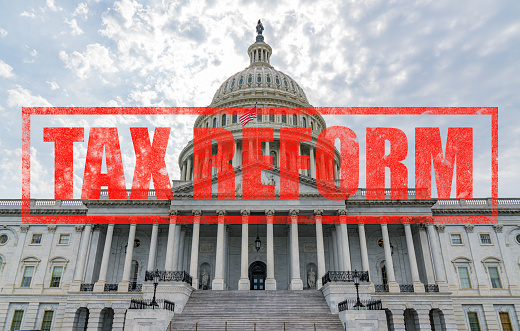
©pabradyphoto/ISTOCK/THINKSTOCK
Staying on top of tax reform impacts and emerging compliance risks
It’s been a while since employers had to content with major tax reform like the Tax Cuts and Jobs Act (TCJA) of 2017, or the velocity of new legislation impacting employers and tax compliance. While the old adage about the certainties of death and taxes still holds true, a whole new way of tax reforms and legislation impacting employment taxes demonstrates clearly that the pace of change is accelerating, creating new uncertainty and new compliance risks.
For financial and accounting executives looking to maintain visibility over employer tax compliance risks, our team has netted out some of the top emerging trends for companies to monitor and pro-actively manage in this time of increasing volatility.
The Scope and Pace of Tax Legislation Change is Increasing
The last time the U.S. government significantly reformed the federal tax code was 1986.
By comparison, within this decade (2010 to present), major tax-related legislation included the American Taxpayer Relief Act of 2012, the Middle Class Tax Relief and Job Creation Act of 2012, the Temporary Payroll Tax Cut Continuation Act of 2011, Tax Relief, Unemployment Insurance Reauthorization, and Job Creation Act of 2010; and the Patient Protection and Affordable Care Act of 2010 . The Affordable Care Act ALONE has resulted in over 20,000 pages of legislation impacting employers.
With the Tax Cuts and Jobs Act (TCJA) of 2017 introducing significant new Federal tax reforms and driving similar legislation in more than forty states, it’s difficult enough for employers just to keep up with the changes, let alone comply with them.
Penalties: More Common, More Costly
In FY2016, the IRS issued more than 5.8 million penalty notices for employment tax, totaling over $6 billion, or roughly $1,000 per notice. Almost all of these penalties were related to “delinquency, failure to pay or federal tax deposits” (95% by volume and 99% of the dollars assessed).
Beyond keeping up with the volume of tax-related legislation, employers face more stringent reporting requirements and penalties. One new culprit: the Affordable Care Act. Employers subject to ACA reporting may be liable for errors on Forms 1095-C. As a result, common mistakes on Forms 1095-C, like transposed social security numbers or misspelled names, may present new penalty risks.
In addition to the complexity of federal ACA reporting requirements is the prospect of states imposing their own health coverage reporting requirements.
New Changes, New Unknowns: TCJA, ACA and State Responses
In response to the TCJA, many states are drafting legislation that may retroactively adopt or reject the federal tax changes. Some may retroactively change the tax treatment of the employee benefits modified by the TCJA. This includes items like commuting benefits and moving expenses.
At the same time, several states are considering an employer payroll tax to mitigate the federal limitation on state/local tax deductibility. New York, New Jersey, Maryland and California are among those states weighing their options.
In addition to the complexity of federal Affordable Care Act reporting requirements, employers are faced with the prospect of states imposing their own health coverage reporting requirements.
For example, in November 2017, the Massachusetts legislature enacted an annual “employer healthcare coverage form”, similar to the IRS Form 1095-C. Employers with six or more employees are required to report whether they offer health coverage, along with details such as “premium cost, benefits offered, cost sharing details, eligibility criteria and other information.”
An employer who knowingly falsifies or fails to file any information required by this section, or its implementing regulation, may be subject to a penalty of not less than $1,000 or more than $5,000 for each violation.
Get Ahead of State and Federal Tax Compliance Issues
While the burden on finance, accounting and human resources from all of these changes and reforms may seem daunting, the reality is that companies have more opportunities than ever to arm themselves with knowledge and technology to turn tax compliance risks into strategic opportunities.
Read our latest whitepaper, The Latest on Tax Reform and Maintaining Compliance, to learn more about trends in tax legislation and how partnering with ADP for success can better align your accounting and human resources objectives with strategic corporate goals for mitigating risk and maximizing growth opportunities.
Download our latest white paper now.